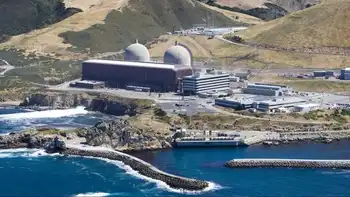GM will do “heavy lifting” toward plug-in goal
Britta Gross is GM's director of global energy systems and infrastructure commercialization, a key element to the reshaping of the bankrupt automaker to be less dependent on gasoline-fueled vehicles.
"I can tell you we can definitely do the heavy lifting part of that," Gross said during a telephone interview with Reuters. "We definitely will lift up our end of that."
Major automakers, including GM, have been ramping up plans for a range of electric-drive vehicles intended to meet sharply higher U.S. fuel economy standards and an expected increase in demand for more fuel-efficient vehicles.
GM will launch the rechargeable Chevy Volt plug-in hybrid by the end of 2010 and plans to have a total of 14 hybrid models in production by 2012.
Gross said it would be a stretch for the industry to meet the White House's stated goal of having one million plug-in hybrid cars within six years, but added that GM was prepared to do its part if key hurdles can be overcome.
"The capacity of General Motors or any large automaker to deploy plug-in vehicles depends on the capacity of suppliers," Gross said. "Among them are battery suppliers. We need more capacity."
Gross said it would take five or more battery manufacturers to make enough batteries to power a million plug-in hybrid vehicles.
Lithium ion batteries have been widely used successfully in laptop computers and telephones, and automakers have been trying to scale down battery size in an effort to power cars without taking up too much space or making vehicles too heavy.
The No. 1. U.S. automaker by sales, GM has been operating in bankruptcy protection since the start of the month in a reorganization funded and steered by the Obama administration.
The showcase vehicle for GM's effort to reinvent itself has been the Volt, a rechargeable electric-drive vehicle.
GM has designed the Volt to carry a lithium-ion battery with an all-electric driving range of 40 miles. A small gasoline engine will power the battery for longer trips.
Gross would not say how many Volts GM hopes to sell in its first year but executives have cautioned that the car's price and availability will limit initial sales.
The Volt is expected to cost around $40,000. Federal tax incentives could bring the cost to consumers closer to $32,500.
The most expensive component in the Volt will be its 400-pound (181 kg) battery pack.
GM will import lithium-ion battery cells from Korea's LG Chem and assemble the finished battery packs for the Volt in Michigan, where the car will be produced.
While Ford Motor Co received promise of $5.9 billion in loans from the U.S. Department of Energy on Tuesday to develop all-electric vehicles, GM will not be eligible for those subsidized loans until it emerges from bankruptcy.
GM's plan calls for a reorganized auto company majority owned by the U.S. Treasury to be sold out of bankruptcy by July or August.
Gross declined to say how much the automaker expected to be granted in Energy Department loans under a program intended to help the cash-strapped auto industry prepare for sharply higher U.S. fuel economy standards.
GM hopes for financial support from the federal government's economic stimulus package, Gross said.
"There are larger stimulus opportunities that look very promising. There is a lot of support politically for our advanced technology programs."
GM and other automakers will have to have the support of things largely out of their control if there are to be a million plug-in hybrids by 2015.
"The price of gasoline is one of the factors," she said, referring the fact that low gasoline prices may keep consumers from buying plug-ins. "The economy is one of the factors."
Two years ago, consumers were probably more likely to embrace electric cars that cost more than conventional gasoline-powered vehicles, Gross said. But the economy has changed that.
"These are new times with new challenges," she said.
Related News

Ameren, Safe Electricity urge safety near downed lines
CAROLINA - Ameren Illinois and Safe Electricity are urging the public to stay in their cars and call 911 in the event of an accident involving a power pole that brings down power lines on or around the car.
In a media simulation Tuesday at the Ameren facility on West Lafayette Avenue, Ameren Illinois employees demonstrated the proper way to react if a power line has fallen on or around a vehicle. Although the situation might seem rare, Illinois motorists alone hit 3,000 power poles each year, said Krista Lisser, communications director for Safe Energy.
“We want to get the word out…




